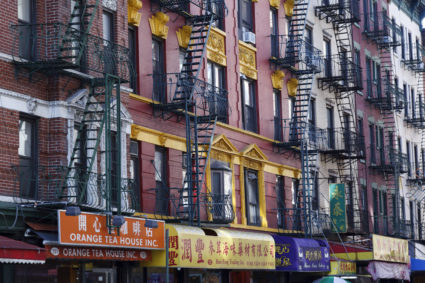Our February 2021 pick for Now Read This, the PBS NewsHour's book club with The New York Times, is Charles Yu's "Interior Chinatown." Become a member of the Now Read This book club by joining our Facebook group, or by signing up to our newsletter. Learn more about the book club here.
Below are questions to help guide your discussions as you read the book over the next month. You can also submit your own questions for Charles Yu on our Google form.
WARNING: Spoiler alert on questions further down
- Throughout the book, Willis Wu feels torn between his own identity and the roles he is pressured to fill as an Asian American actor. Have you experienced similar tensions in your own life?
- What did you make of the structure of the story, written as a teleplay?
- The book is written as a story within another work of fiction, interweaving the plot of a cop show with the experiences of Willis as an actor. Were there moments where the artifice of the story stood out to you?
- At one point, Willis describes his father as "a leading man trapped in the body of an extra." Why does it upset him to watch his father transition to the role of "Old Asian Man"?
- Yu writes that Willis' parents "knew that behind them was a historical backdrop, that they were part of a prestigious project, with the sweep and scope of a grand American narrative." How do their stories show the limits of the American dream?
- The cop show "Black and White" doesn't always make sense, Yu writes, "But the template works, and you don't mess with a working template." Did it remind you of other television shows or films you grew up watching?
- "I'm not a person. I'm a category," Miles Turner tells Willis. How are actors of different races, such as Turner and Willis, pitted against one other in this book?
- "Ever since you were a boy, you've dreamt of being Kung Fu Guy," Yu writes early in the book. How does Willis's dream change by the end of the book? Why does the role of "Kung Fu Guy" no longer hold the same allure for him?
- What commentary does Yu offer on racism and representation in Hollywood through this fictional story?
- How did the book affect your understanding of America's history of anti-Asian discrimination?
Support Canvas
Sustain our coverage of culture, arts and literature.

